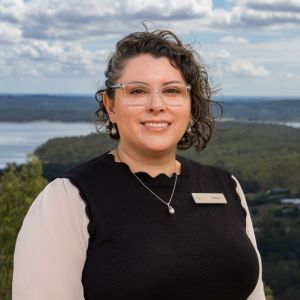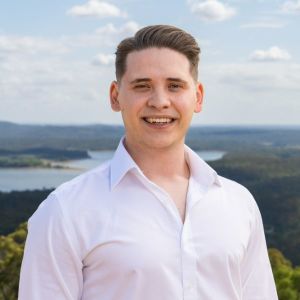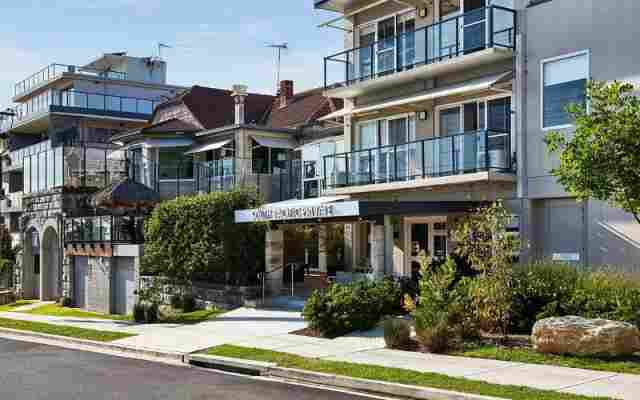








The Banyans
This provider's information has been quality-checked by Recovery.com's Research Team for accuracy and completeness, including center verification through appropriate third-party organizations.
Treatment Focus
You can admit to this center with a primary substance use disorder or a primary mental health condition. You'll receive support each step of the way and individualized care catered to your unique situation and diagnosis.
Primary Level of Care
Offering intensive care with 24/7 monitoring, residential treatment is typically 30 days and can cover multiple levels of care. Length can range from 14 to 90 days typically.
Treatment Focus
You can admit to this center with a primary substance use disorder or a primary mental health condition. You'll receive support each step of the way and individualized care catered to your unique situation and diagnosis.
Primary Level of Care
Offering intensive care with 24/7 monitoring, residential treatment is typically 30 days and can cover multiple levels of care. Length can range from 14 to 90 days typically.
Private Pay
You pay directly for treatment out of pocket. This approach can offer enhanced privacy and flexibility, without involving insurance. Exact costs vary based on program and length of stay. Contact the center for specific details.
The Banyans
The Banyans
About The Banyans
The Banyans provides residential treatment programs for individuals experiencing depression and anxiety, chronic stress and burnout, drug and alcohol dependency, eating disorders, and other co-occurring conditions. With a limited capacity of up to just 10 guests at a time, their secluded location in private hinterlands provides a secure haven where world-class clinicians, tailored treatment plans, and pristine surroundings merge seamlessly to ensure guests’ wellbeing is nurtured with discretion.
Receive Gold-Standard Clinical Treatment
Programs at The Banyans Residence are based on a biopsychosocial framework where their multidisciplinary team works collaboratively to address issues from medical, emotional, physical, and nutritional perspectives. Depending on the program, up to 14 clinicians provide the guest with integrated, wraparound 1:1 care. Psychiatrists, general practitioners, and registered nurses safeguard health, while therapists help uncover and heal root causes. Addiction medicine specialists support recovery with physiological care, including on-site, non-medical detox. Additional specialists deliver equine-assisted, art, and music therapies, personalised nutrition planning, and tailored fitness sessions to restore balance in mind, body, and spirit.
Retreat to a Destination with Impeccable Standards
The Banyans Health and Wellness Residences are located in southeast Queensland. Nestled amongst pristine natural and secluded surroundings, the properties boast infinity pools, on-site industry-equipped gyms, private cinemas, individual luxury suites, and uninterrupted views of the Brisbane hinterland region. Staff uphold guests’ high standards for luxury and comfort with concierge services that attend to every detail with discretion and precision. Personal concierges handle requests and errands, personal shoppers source special items, and an animal husbandman cares for guests’ pets. For added assurance, low-profile 24/7 personal security is available.
Sustain Progress with Personalised Aftercare
After completing the residential program, guests can transition to The Banyans Health Plus day program. Delivered in one-day intensives each week, guests are empowered to prioritise their wellbeing whilst managing life’s demands. Via telehealth or in-person sessions in the heart of Brisbane, guests seamlessly integrate their recovery journey into their weekly routine. Each guest’s personalized aftercare program offers up to 7 one-on-one therapeutic sessions each treatment day.
Highlights from the Center
Highlights
These highlights are provided by and paid for by the center.
Bespoke With Exclusive Staff
Holistic Approach
Utmost Confidentiality
1-on-1 Sessions Only
Center Overview
Treatment Focus
You can admit to this center with a primary substance use disorder or a primary mental health condition. You'll receive support each step of the way and individualized care catered to your unique situation and diagnosis.
Helped 12 people on Recovery.com

Helped 12 people on Recovery.com
Pricing and Program Length
Estimated Center Costs
The cost listed here (from $20,000 AUD / week), is an estimate of program cost. Center price can vary based on program and length of stay. Contact the center for more information. Recovery.com strives for price transparency so you can make an informed decision.
Our Network of Partner Facilities
Recovery.com Verified Listing
Recovery.com verified that the name, location, contact information and license to operate for this treatment provider are valid and up-to-date.

Accredited

Licensed by the National Standards

Registered
Recovery.com is an independent, third-party mental health resource. Verification does not imply endorsement and does not guarantee the quality of treatment services.
Meet your care team

Dr. Sampath Arvapalli
Psychiatrist
MBBS, MRCPsych, FRANZCP

Dr. Anja Kriegeskotten
Chief Psychiatrist
MD, FRANZCP, Cert Child and Adolescent Psychology, EAGALA

Leila Gray
Clinical Lead
BPsych (Hons), MPsych (Clinical)

Tammy Spiller
Clinical Nutritionist
BHlthSc (NutrMed)

Emily Ghaiyed
Dietitian
APD, MDietSt, BENS, Cert III and IV in Fitness, CEDC

Charly Harrison
Music Therapist
MMusThy, RMT

Cielle van Vuuren
Art Therapist / Aftercare Counsellor
AThR, MMH, Grad Dip Therapeutic Arts Practice, B Fine Art, Cert III Visual Arts & Contemporary Craft, Cert III Home & Community Care

Gillian Baker-Murphy
Registered Nurse
BNursing

Brent Haer
Chef Manager

Taryn Byron
Health Plus Manager
Bachelor´s Health Services/ Allied Health/ Health Sciences, Nutrition

Gus Wauchope
Intake Manager
Bachelor of Behavioural Science (Psychology)

Charlotte Weinrauch
Guest Services Coordinator
Bachelor´s Psychological Sciences

Stuart Garratt
Facilities Manager




Treatment
Specializations
Alcohol
Using alcohol as a coping mechanism, or drinking excessively throughout the week, signals an alcohol use disorder.
Anxiety
Anxiety is a common mental health condition that can include excessive worry, panic attacks, physical tension, and increased blood pressure.
Cocaine
Cocaine is a stimulant with euphoric effects. Agitation, muscle ticks, psychosis, and heart issues are common symptoms of cocaine abuse.
Depression
Symptoms of depression may include fatigue, a sense of numbness, and loss of interest in activities. This condition can range from mild to severe.
Drug Addiction
Drug addiction is the excessive and repetitive use of substances, despite harmful consequences to a person's life, health, and relationships.
Eating Disorders
An eating disorder is a long-term pattern of unhealthy behavior relating to food. Most people with eating disorders have a distorted self-image.
Gambling
Excessive, repetitive gambling causes financial and interpersonal problems. This addiction can interfere with work, friendships, and familial relationships.
Who We Treat
Adolescents
Teens receive the treatment they need for mental health disorders and addiction, with the added support of educational and vocational services.
Co-Occurring Disorders
A person with multiple mental health diagnoses, such as addiction and depression, has co-occurring disorders also called dual diagnosis.
Executives
Executive treatment programs typically directly support the needs of people who manage businesses and may provide flexible schedules and office space to allow work during treatment.
Young Adults
Emerging adults ages 18-25 receive treatment catered to the unique challenges of early adulthood, like college, risky behaviors, and vocational struggles.
LGBTQ+
Addiction and mental illnesses in the LGBTQ+ community must be treated with an affirming, safe, and relevant approach, which many centers provide.
Midlife Adults
For adults ages 40+, treatment shifts to focus on the unique challenges, blocks, and risk factors of their age group, and unites peers in a similar community.
Mild Disabilities
Adults with mild physical or intellectual disabilities receive treatment catered to their specific needs in a safe and clinically supportive environment.
Treatment Services
Day Treatment
In a PHP, patients live at home but follow an intensive schedule of treatment. Most programs require you to be on-site for about 40 hours per week.
Detox
Detox fully and safely removes toxic substances from the body, allowing the next steps in treatment to begin with a clean slate.
Detox (off-site)
This is often the first step of addiction treatment. For many people, it's dangerous to detox without proper medical support.
Intensive Outpatient Program
In an IOP, patients live at home or a sober living, but attend treatment typically 9-15 hours a week. Most programs include talk therapy, support groups, and other methods.
Licensed Primary Mental Health
Some primary care providers offer mental health diagnosis and treatment. This can prevent patients from developing more serious conditions.
Outpatient
During outpatient rehab, patients attend a structured treatment program while continuing to live at home.
Residential
In a residential rehab program, patients live onsite, with access to daily treatment and 24-hour care. An average stay is 30-90 days.
Retreat
These curated experiences promote physical, mental, and spiritual well-being, and provide a break from the busy pace of daily life.
Approaches
Bio-Medical
A philosophy focusing on the biomechanics behind mental health disorders, using prescribed medications as a supplement to behavioral therapy.
Evidence-Based
A combination of scientifically rooted therapies and treatments make up evidence-based care, defined by their measured and proven results.
Holistic
A non-medicinal, wellness-focused approach that aims to align the mind, body, and spirit for deep and lasting healing.
One-to-One
Patients work with their treatment team members on a 1-on-1 basis, keeping their journey and treatment fully private and personalized.
Therapies
Meditation & Mindfulness
A practiced state of mind that brings patients to the present. It allows them to become fully aware of themselves, their feelings, and the present moment.
Online Therapy
Patients can connect with a therapist via videochat, messaging, email, or phone. Remote therapy makes treatment more accessible.
Mindfulness Therapy
This ancient practice can be mental, emotional, and even spiritual. In meditation, you focus your attention on the present moment without judgement.
Adventure Therapy
This experiential approach uses the physical and emotional challenges of outdoor activities as tools for personal growth.
Aromatherapy
Inhaling or topically applying essential oils can help relieve stress, soothe pains, and relieve emotional distress.
Art Therapy
Visual art invites patients to examine the emotions within their work, focusing on the process of creativity and its gentle therapeutic power.
Equine Therapy
Guided interactions with trained horses, their handler, and a therapist can help patients improve their self-esteem, trust, empathy, and social skills.
Experiential Therapy
With this approach, patients heal by doing. Therapists help patients process difficult emotions to speak, using guided activities like art or dance.
Conditions We Treat
Pornography Addiction
A person with a porn addiction is emotionally dependent on pornography to the point that it interferes with their daily life and relationships.
Grief and Loss
Grief is a natural reaction to loss, but severe grief can interfere with your ability to function. You can get treatment for this condition.
ADHD, ADD
ADHD is a common mental health condition caused by dopamine imbalance. Common symptoms include inattention, hyperactivitiy, and impulsivity.
Anxiety
Anxiety is a common mental health condition that can include excessive worry, panic attacks, physical tension, and increased blood pressure.
Bipolar
This mental health condition is characterized by extreme mood swings between depression, mania, and remission.
Burnout
Burnout entails mental and physical exhaustion, and leads to a severe lack of fulfillment. This condition is often caused by overwork.
Depression
Symptoms of depression may include fatigue, a sense of numbness, and loss of interest in activities. This condition can range from mild to severe.
Eating Disorders
An eating disorder is a long-term pattern of unhealthy behavior relating to food. Most people with eating disorders have a distorted self-image.
Gambling
Excessive, repetitive gambling causes financial and interpersonal problems. This addiction can interfere with work, friendships, and familial relationships.
Obsessive Compulsive Disorder (OCD)
OCD is characterized by intrusive and distressing thoughts that drive repetitive behaviors. This pattern disrupts daily life and relationships.
Substances We Treat
Alcohol
Using alcohol as a coping mechanism, or drinking excessively throughout the week, signals an alcohol use disorder.
Benzodiazepines
Benzodiazepines are prescribed to treat anxiety and sleep issues. They are highly habit forming, and their abuse can cause mood changes and poor judgement.
Chronic Relapse
Consistent relapse occurs repeatedly, after partial recovery from addiction. This condition requires long-term treatment.
Co-Occurring Disorders
A person with multiple mental health diagnoses, such as addiction and depression, has co-occurring disorders also called dual diagnosis.
Cocaine
Cocaine is a stimulant with euphoric effects. Agitation, muscle ticks, psychosis, and heart issues are common symptoms of cocaine abuse.
Drug Addiction
Drug addiction is the excessive and repetitive use of substances, despite harmful consequences to a person's life, health, and relationships.
Methamphetamine
Methamphetamine, or meth, increases energy, agitation, and paranoia. Long-term use can result in severe physical and mental health issues.
Opioids
Opioids produce pain-relief and euphoria, which can lead to addiction. This class of drugs includes prescribed medication and the illegal drug heroin.
Prescription Drugs
It's possible to abuse any drug, even prescribed ones. If you crave a medication, or regularly take it more than directed, you may have an addiction.
Languages
Aftercare
Experience
Personal Amenities
Amenities
Special Considerations
Transition Program
Patients in a transition program gradually return to life outside treatment, helping lower chances of relapse and continue care in a less intense setting.
Center Pets
Addiction and mental health facilities with pets allow patients to interact with friendly dogs, cats, horses, and in some cases, even dolphins.
Clients can bring their own pet(s)
For greater comfort and healing, pet-friendly treatment centers welcome dogs and animal companions to stay with their owners while they attend treatment.
Couples program
Using gentle clinical care, therapists guide patients and their partner through guided sessions to address issues and work towards lasting solutions.
Pet Friendly
For greater comfort and healing, pet-friendly treatment centers welcome dogs and animal companions to stay with their owners while they attend treatment.
Executive Program
Addiction and mental health treatment for executives typically involves high discretion, greater technology access, and more private, 1-on-1 care.
Activities
Yoga
Yoga is both a physical and spiritual practice. It includes a flow of movement, breathing techniques, and meditation.
Off-Site Activities
Off-Site Amenities

Helped 12 people on Recovery.com
Learn More About the Center
How to Fund a Banyans Treatment Program
Learn about finance options like releasing superannuation early, payment plans, government and private insurance.
The Banyans Approach to Recovery
Discover the biopsychosocial approach behind The Banyans recovery programs.
Discover a Full Spectrum of Therapies
Explore The Banyans’ diverse range of evidence-based and experiential treatments.
Upgrade with Signature Experiences
Enjoy bespoke services like personal shopping, pet grooming, sleep studies, personal security, and excursions.
What people are saying
Accommodations
Food & Nutrition
Treatment
Value
Pros
- Easy to Work With (2)
- Smooth Transition (2)
- Beautiful Location (5)
- Excellent & Effective Treatment Programming (4)
See More
Shea
Andrew Stone
Anonymous
Rachel
Anonymous
We love hearing about your treatment experience
Help individuals and families seeking treatment by sharing your first-hand experience with this treatment provider. Review Guidelines.








